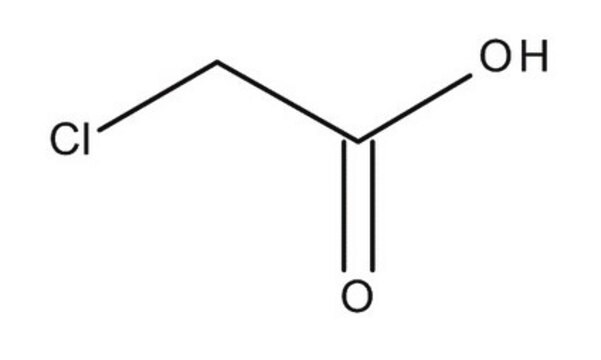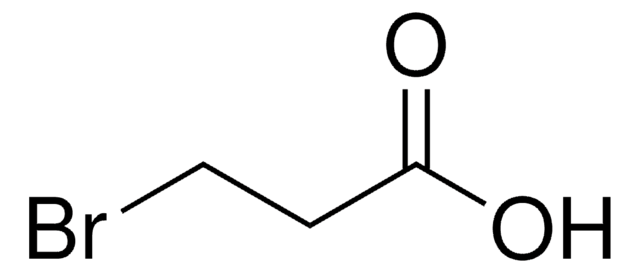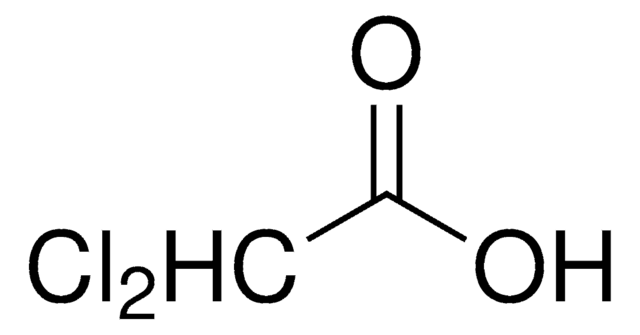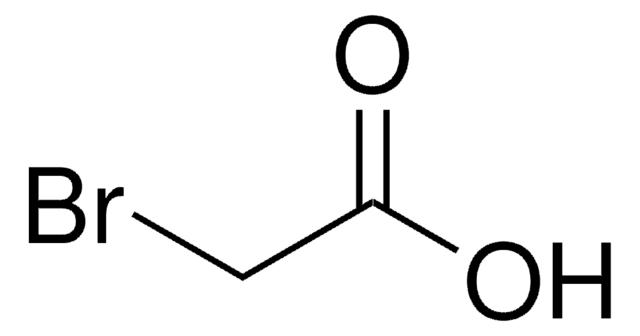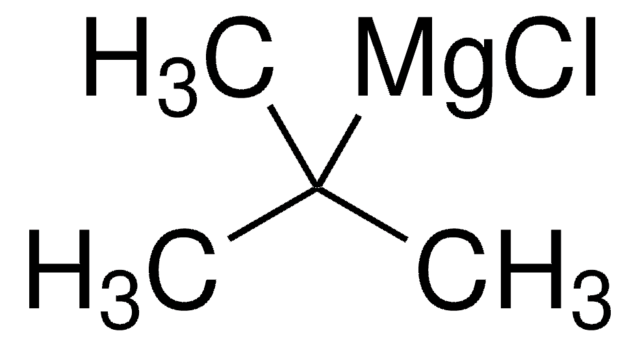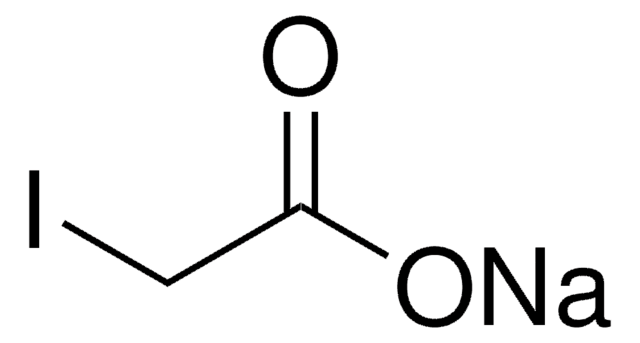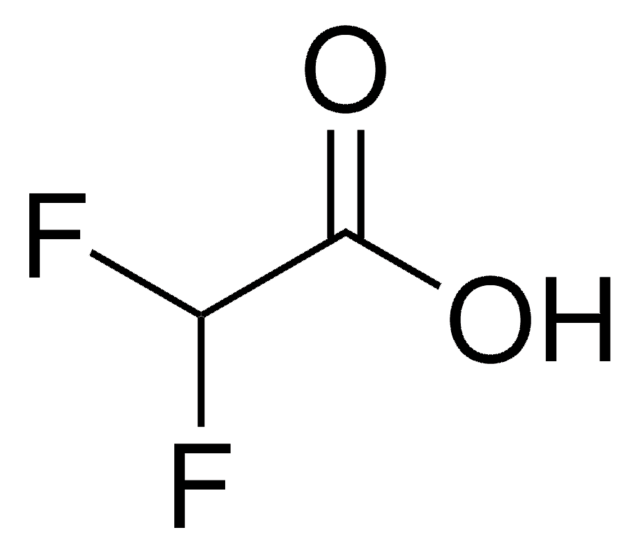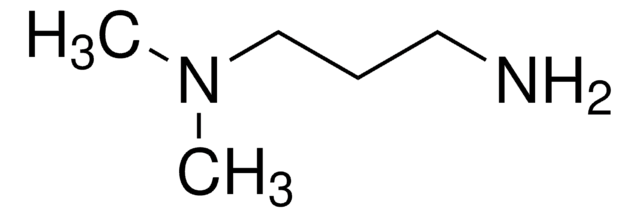291773
Sodium chloroacetate
98%
Synonym(s):
Chloroacetic acid sodium salt
About This Item
Recommended Products
Assay
98%
form
powder or chunks
mp
199 °C (dec.) (lit.)
SMILES string
[Na+].[O-]C(=O)CCl
InChI
1S/C2H3ClO2.Na/c3-1-2(4)5;/h1H2,(H,4,5);/q;+1/p-1
InChI key
FDRCDNZGSXJAFP-UHFFFAOYSA-M
Looking for similar products? Visit Product Comparison Guide
Application
- Nano-copper ions assembled cellulose-based composite with antibacterial activity for biodegradable personal protective mask.: This study explores the creation of a nano-copper ions cellulose-based composite, showcasing its potential antibacterial properties and application in biodegradable personal protective masks (Shao et al., 2023).
- Effective extraction of fluoroquinolones from water using facile modified plant fibers.: This article investigates the use of modified plant fibers for the efficient extraction of fluoroquinolones from water, highlighting the utility of sodium chloroacetate in the modification process (Zhang et al., 2022).
- Sodium Chloroacetate Modified Polyethyleneimine/Trimesic Acid Nanofiltration Membrane to Improve Antifouling Performance.: The study details the improvement of antifouling performance in nanofiltration membranes through modification with sodium chloroacetate (Gu et al., 2021).
- Preparation of BiOCl/Bi(2)WO(6) Photocatalyst for Efficient Fixation on Cotton Fabric: Applications in UV Shielding and Self-Cleaning Performances.: This research focuses on the application of a BiOCl/Bi(2)WO(6) photocatalyst in UV shielding and self-cleaning performances on cotton fabric, employing sodium chloroacetate in the preparation process (Chen et al., 2021).
Signal Word
Danger
Hazard Statements
Precautionary Statements
Hazard Classifications
Acute Tox. 3 Oral - Aquatic Acute 1 - Eye Irrit. 2 - Skin Irrit. 2
Storage Class Code
6.1D - Non-combustible acute toxic Cat.3 / toxic hazardous materials or hazardous materials causing chronic effects
WGK
WGK 3
Flash Point(F)
518.0 °F - closed cup
Flash Point(C)
270 °C - closed cup
Certificates of Analysis (COA)
Search for Certificates of Analysis (COA) by entering the products Lot/Batch Number. Lot and Batch Numbers can be found on a product’s label following the words ‘Lot’ or ‘Batch’.
Already Own This Product?
Find documentation for the products that you have recently purchased in the Document Library.
Customers Also Viewed
Our team of scientists has experience in all areas of research including Life Science, Material Science, Chemical Synthesis, Chromatography, Analytical and many others.
Contact Technical Service
